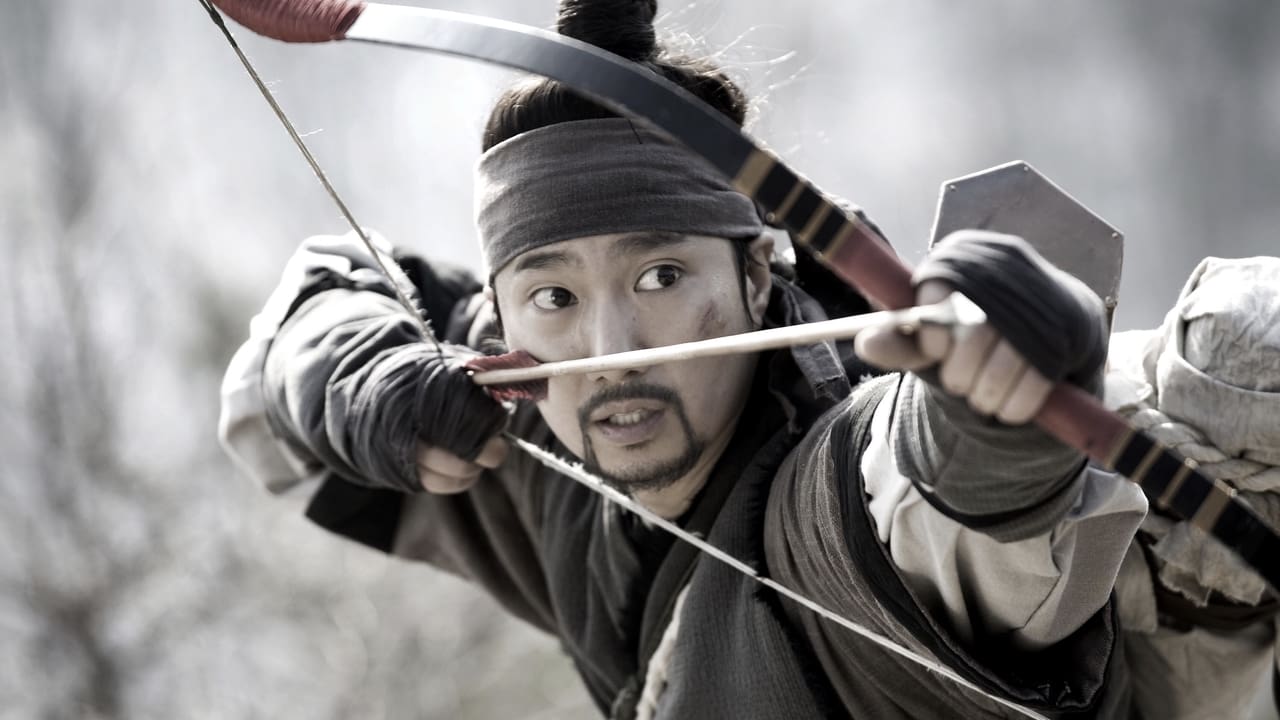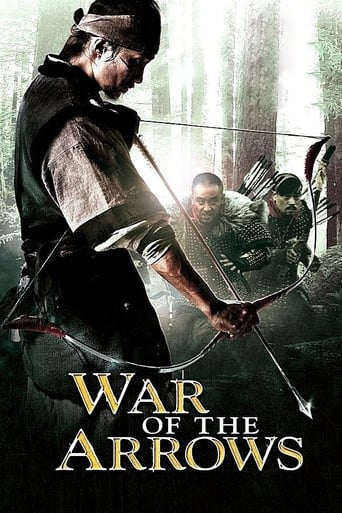

I feel like I wasted 2 hours on this movie. It supposed to be an action thriller, but my heart wasn't pumping with anticipation. Here are my reasons.1. I wasn't sure how the brother/sister's family became traitors. 2. The brother (Nam Yi?) looks too old to play the part. 3. The Netflix description mentioned Mongols but in the movie, the villains were Manchurians. 4. How could the brother know there was a tiger nearby? He kept screaming for the tiger. He was a stranger in foreign land in China. 5. How come the tiger only attacked Chinese (Manchuians) while sparing the Korean? Why Chinese tiger only attacks Chinese? 6. How can someone pull an arrow out of his wounded heart and still managed to shoot it accurately? 7. I think it's bit too harsh to burn the Manchurian prince alive. He didn't do anything to the girl. He didn't deserve such a horrific death. 8. I think it was too easy for the brother to find and rescue his sister and overcome the fierce looking soldiers. It reminds me of Rambo. 9. The endless supply of arrows.To be honest, I felt more connected to the main villain.
... View MoreI watched it once and I want to watch it again less than a month after the first serving. It is that good. The arrow shooting scenes are, as expected, spectacular. The photography is second to none and the story is well told, even though it is a tad on the simple side. Nevertheless the movie is highly recommendable. This is the story of a brother who goes against all odds to save his sister from capture by raiders coming from China. Outnumbered but not outwitted, he will prevail after a hair-raising adventure. This is an original twist to a tale because we're used to watch sniper-rifle action at long distance in the modern world. Now picture a sniper-bow action and you'll get the idea. If you liked "Red Cliff" and "The Warlords"(Both Chinese productions) you will enjoy "War of Arrows" (Korean production) and won't be disappointed.
... View MoreI loved this film from start to finish. The story line was plausible, the plot was well developed and the characters were believable. The biggest bonus for me in this film is that the combat scenes/martial arts sequences were believable and realistic. So many of the recent films of this genre have had fight scenes which basically bordered on the ridiculous. Crouching Tiger Hidden Dragon for example was basically a choreographed high wire act for much of the movie and in honest, just a tad silly! Hopefully we will see more of this type of film from this part of the world. The only thing which was a bit weak was the tiger scenes. Possibly a little more resource could have been thrown at this? The soundtrack was also interesting. It did occasionally drift into very familiar Territory, i.e. you felt you'd heard that music in a similar type of movie?
... View MoreThis is a stylish and sleek movie that is unduly criticized by many, especially those from other Asian countries as can be seen among other reviews here.Most do not seem to understand the main point of this movie because they do not know the historical background this movie was set against and consequently they just think this is a ripoff of Hollywood.The time ... the 17th century. Korea just repelled the Japanese invasion with Ming China's aid which alternated between being an ally and being racist tormentors of the Korean populace.Manchu(Jurchens) were a nation of fierce warriors from the north, or they thought of themselves that way at least. They had been under the Chinese yoke and just threw it off. They are eventually to invade China proper and to rule over Chinese for the next 300 years. If you saw Last Emperor you will understand this historical setting.An important thing to remember here is that they were NOT Chinese. Their hatred of Chinese was immense, almost pathological.(and the reason that they invaded Korea was precisely that the Korean court acted like a vassal of Ming China.) This contrasts very sharply with today's Manchu who think of themselves as Chinese.Just 40 years prior to this event there was the infamous Japanese invasion of Korea and Ming China sent a force to aid Koreans. But this force came from Liatung base, the primary function of which was to suppress Jurchens and Mongols.Even though that war ended in the victory for Korea and China this created a power vacuum in Manchuria as Ming China no longer controlled the region effectively. This is how the Jurchens(Manchu) rose to power. They were burning with hatred of Chinese for their condescending and racist treatments of their people.The Korean King who was the crown prince at the time of the Japanese invasion ascended to the throne in the early 17th century. And because of his war time experience he was a practical man and saw the newly arising Manchu as a force to reckon with. He tried to be neutral between Ming China and Manchu.However he was deposed by a group of Korean nobility and they tried to justify their coup with a more pro china stance. This is how Manchu invaded Korea twice and the second one was more catastrophic as shown in this movie.So this movie is about the anger of the Korean masses felt toward the effete and effeminate Korean nobility class who were incredibly more loyal to Chinese than to their own people. It is about a war that could have been avoided if the Korean King at the time(generally regarded as the weakest and the most effeminate king in the history of Korea) and the nobility could back their word with action or had a more practical sense.The Korean government did not help their people, actually did not even want to as long as they could hold onto their power, so the people had to help themselves against all odds. This is the basic premise of this film.Anyway for those who are not interested in Korean or East Asian history... Manchu are not Chinese and the language they spoke in the movie was not Chinese.(In fact it was the Manchu language which is now dead. It was recreated from the Korean records of the Manchu language. The movie creator deserves some credit for this.)If you can free yourself from this common misconception that Manchu were just a type of Chinese people you are already half-way there. Manchu were no more Chinese than Mongols are.
... View More